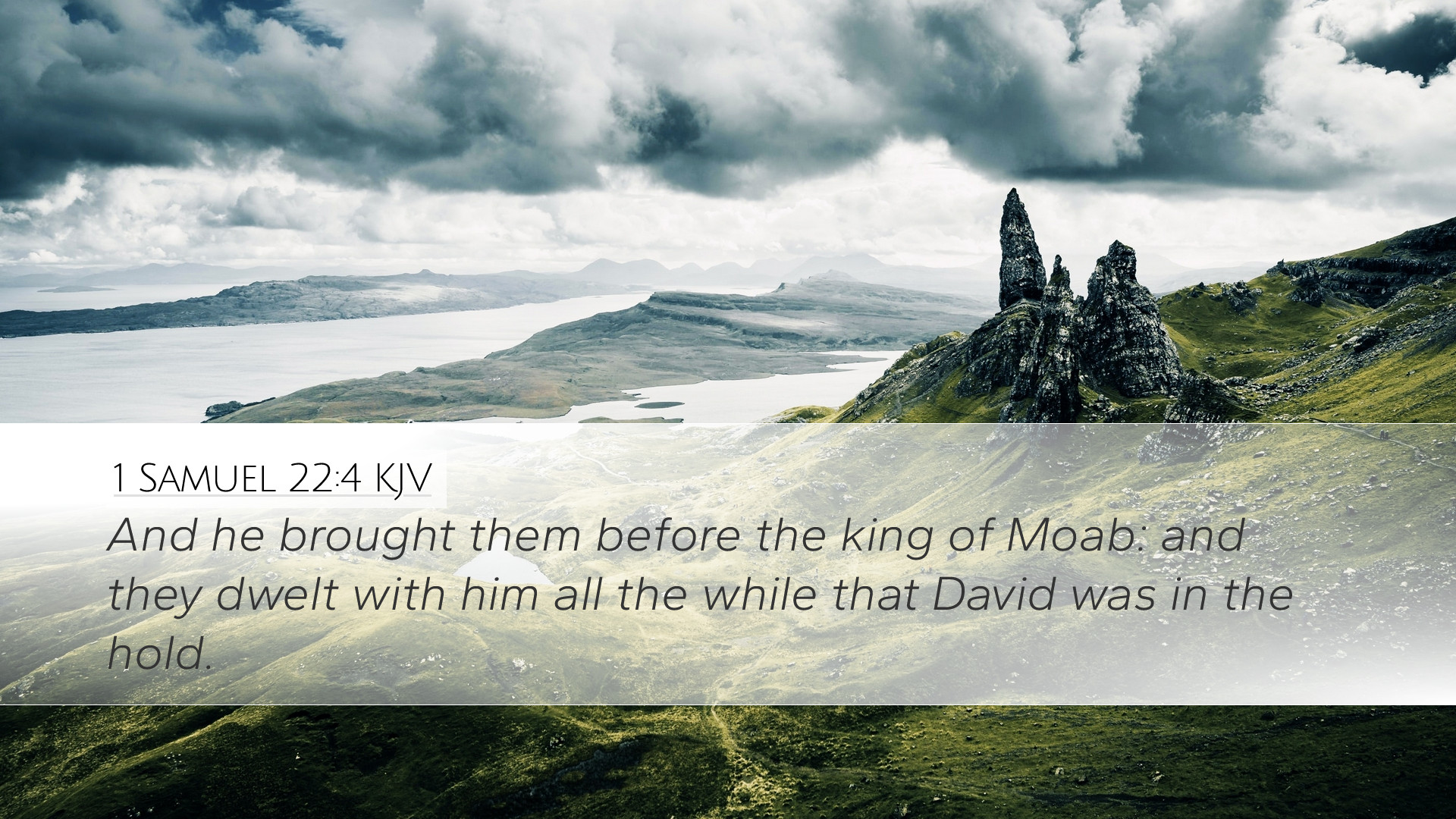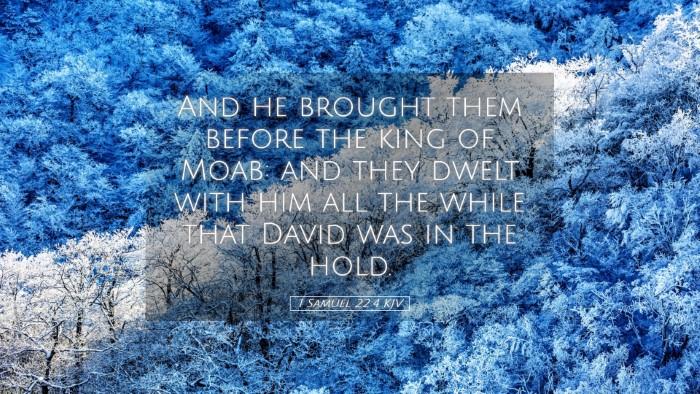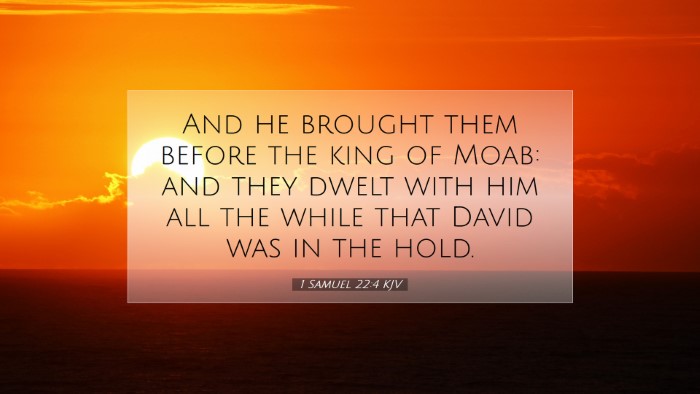Commentary on 1 Samuel 22:4
Verse Reference: 1 Samuel 22:4 - "And he brought them before the king of Moab: and they dwelt with him all the while that David was in the hold."
Introduction
This verse is a pivotal moment in the life of David as he navigates the complexities of his future while on the run from King Saul. As we analyze 1 Samuel 22:4, we draw from the insights of respected public domain commentaries to explore its theological implications, historical context, and its relevance to contemporary readers.
Context and Background
The background of this passage is critical to understanding David's circumstances. Following his anointing as king, David finds himself fleeing from King Saul, who is consumed by jealousy and paranoia. This period marks a significant transition in David's life from a favored servant to a fugitive. In this context, the mention of Moab and the bringing of David’s family highlights the desperate measures he took to protect his loved ones.
Historical Significance
David's decision to seek refuge in Moab indicates the perilous state of his life and ministry. Moab, historically an adversary of Israel, serves as a sanctuary for David's family during his trials. This action reflects a strategic, albeit controversial, choice. As Adam Clarke notes, David's turn to Moab represents both a logistical decision and a moment of vulnerability.
Exegesis of the Verse
In examining the key components of 1 Samuel 22:4, we find several layers of meaning.
- “He brought them before the king of Moab”: This phrase reveals David's initiative and his further commitment to ensuring his family's safety. As Matthew Henry comments, David’s leadership qualities are highlighted here—he actively seeks protection for his family.
- “They dwelt with him”: The implications of this phrase suggest not just physical safety, but a sense of community and belonging. It shows the importance of family during times of distress. Albert Barnes remarks on the stark contrast between David's previous status and his present condition, illuminating the moral and emotional weight of this moment.
- “All the while that David was in the hold”: The term "hold" relates to David's current circumstances, implying a place of refuge but also of uncertainty. This aspect connects to the broader theme of waiting and trusting in God despite adversity, as emphasized by various commentators.
Theological Reflections
The passage invites readers to reflect on key theological themes, particularly relating to faith, providence, and human agency.
Faith Amid Trials
David's actions signify an act of faith as he attempts to navigate his perilous situation. He shows a deep reliance on God while taking practical steps to protect his loved ones. This balance between faith and action is significant, reminding leaders and believers of the importance of trusting divine providence while actively engaging in the life situations they face.
Divine Providence
God's providence is visible throughout David's life, particularly during this tumultuous time. The choice to seek refuge in Moab may appear risky, yet it indicates a broader divine plan at play. Commentators such as Barnes emphasize that God's hand is subtly guiding these events, leading toward a future where David will ultimately fulfill his destiny as king.
Implications for Pastors and Theologians
This passage bears rich implications for pastoral ministry and theological study. The challenges David faced resonate with many contemporary issues faced by leaders and communities today.
Leadership Lessons
David's proactive approach to securing his family’s safety serves as a model for leaders in recognizing their responsibilities towards those they serve. His vulnerability humanizes him, allowing pastors and leaders to connect with congregations on a profound level; understanding that leadership is often marked by moments of struggle and desperation.
Trusting God in Adversity
This text is a profound reminder for students of scripture and theology that faith is not a passive sentiment but often requires action in the face of hardship. The tension between faith and fear is a universal experience, making this passage deeply relevant for those in ministry and study.
Conclusion
1 Samuel 22:4 encapsulates a critical moment in the life of David, reflecting themes of protection, vulnerability, and divine guidance. Through the insights provided by prominent commentators, we see that this verse speaks to the modern believer's journey, encouraging a balance of faith and proactive measures in the face of life's uncertainties. As such, the lessons drawn from David's experience remain timeless, providing insight and guidance for pastors, students, and theologians alike.


